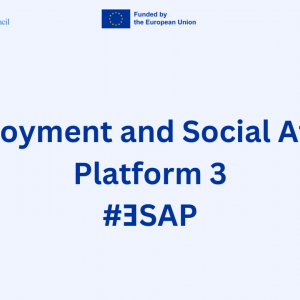How to adapt employment services to build trust with vulnerable young jobseekers

Public Employment Services (PES) have a key role to play in implementing the reinforced Youth Guarantee (YG), but can only do this successfully by showing flexibility in their offer to reach and gain the trust of vulnerable young people – often through partnership-based approaches.
A new PES Network Thematic Report on Youth employment support has highlighted both the importance and possible approaches for targeting additional support at vulnerable young people not in employment, education or training (NEETs).
To successfully address the variety of vulnerable young people – and their various barriers and needs - PES need to demonstrate flexibility in the methods, measures and services offered. Furthermore, from the various experiences of PES thus far in trying to reach different potential clients, it is clear that gaining the trust of vulnerable young people is critical.
In this context, a key message for PES is that outreach to more vulnerable NEETs will need cooperation with a variety of local actors, from associations and educational establishments to specialist counsellors trained in mental health issues. This requires effective and appropriate information and data sharing, and means that PES counsellors will need to spend more time managing these partnerships.
These conclusions emerged from an intense exchange of ideas between PES during a 1.5-day Thematic Review Workshop (TRW) on Youth Employment Support in March 2021 hosted by the French PES, Pôle emploi, and including around 40 participants from 18 PES.
The PES Network organised the workshop in response to the Member States’ commitment in October 2020 to a reinforced Youth Guarantee (YG) and the recognition that, whilst 30 million young people have benefitted from YG since 2014, there are still large groups who have not. The COVID-19 pandemic has only increased the urgency of their needs.
The findings of the thematic report are structured according to the four main phases suggested by the EU Council’s Recommendation ‘A Bridge to Jobs – Reinforcing the Youth Guarantee’ addressing: 1. the mapping phase; 2. the outreach phase; 3. the preparatory phase; and 4. the offer.
The report also highlights areas for potential further investigation and experimentation, including assessing different outreach methods for specific client groups and identifying appropriate incentives for service providers.
Source: ec.europa.eu/social/


